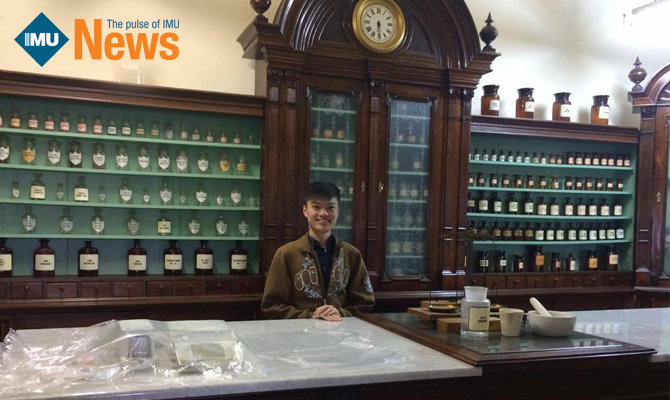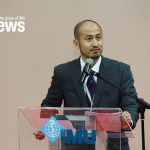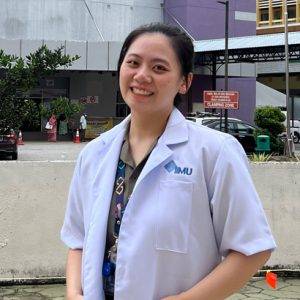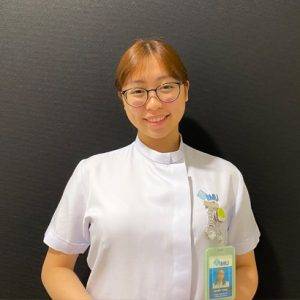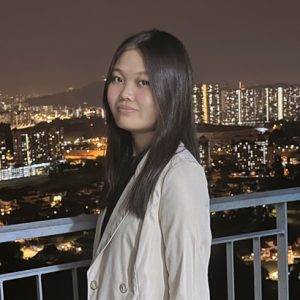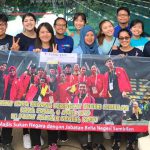The Student Exchange Programme is one of the main activities for the International Pharmaceutical Students’ Federation (IPSF). It is a mobility programme that gives pharmacy students from all over the world the opportunity to get to know about pharmacy in a different country. The member associations of IPSF organise the exchanges by finding host sites where the students are trained. The programme is very competitive and only selected students will be given an opportunity to join the student exchange programme. An IMU Bachelor of Pharmacy third year student, Tan Wee Kiat, was selected to join this programme at Croatia. He shares with us his experience at a recent attachment at Croatia. “I have never taken a flight nor gone overseas alone. On 28 April, I started my adventure to Europe in KLIA, taking the flight to Zagreb, Croatia that is 9,800 km away from Malaysia. After a 16-hour flight including 3 hours transit in Istanbul, Turkey, I finally reached Croatia. As soon as I arrived, the representative of Croatian Pharmaceutical Student Association (CPSA) welcomed me and sent me to my hostel. 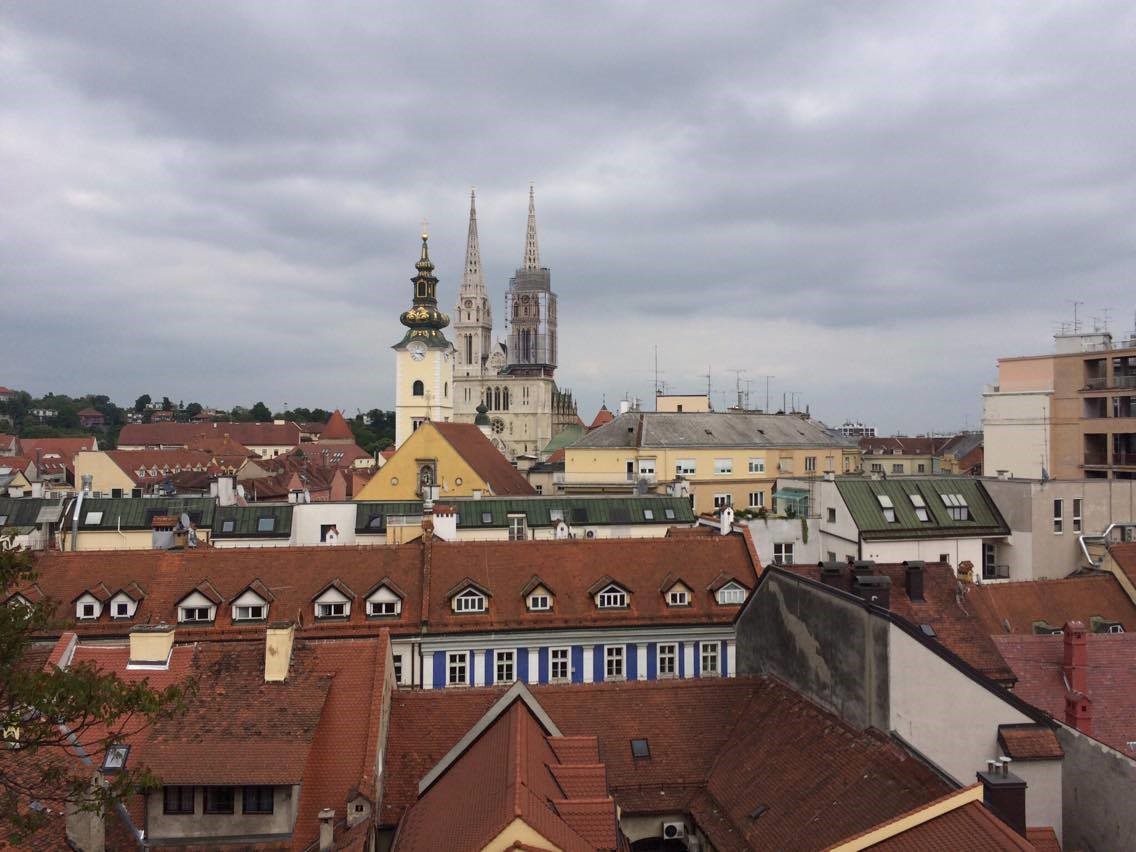 As I would be starting my internship on 2 May, the early arrival allowed me to visit Zagreb, which is the capital of Croatia. The capital is not as urbanised as Kuala Lumpur, however, it is culturally, historically, and architecturally more attractive than Kuala Lumpur. The city is designed in such a way that the city centre is committed to economic activity and tourism while the housing areas are scattered surrounding the centre of city. Similar to other European countries, the public transport, particularly tram is the primary transportation for tourist and locals to travel around Zagreb. Similar to other Europeans, Croatians have a slow pace in their working days. They love to go for coffee breaks throughout the working days, chilling at cafes around Zagreb during weekends. A Croatian told me that the coffee breaks with friends are important for their work performance. Unlike some European countries, most of the shops in Zagreb have long working hours, most commonly from 7 am to 8 pm. Historically, as Zagreb is part of the Austrian-Hungarian Empire, the hundred years old medieval buildings in the centre of Zagreb carry the same characteristics of buildings in Austria and Hungary. Besides the architectural influence, the Croatian language is used in Slovenia and Serbia as well.
As I would be starting my internship on 2 May, the early arrival allowed me to visit Zagreb, which is the capital of Croatia. The capital is not as urbanised as Kuala Lumpur, however, it is culturally, historically, and architecturally more attractive than Kuala Lumpur. The city is designed in such a way that the city centre is committed to economic activity and tourism while the housing areas are scattered surrounding the centre of city. Similar to other European countries, the public transport, particularly tram is the primary transportation for tourist and locals to travel around Zagreb. Similar to other Europeans, Croatians have a slow pace in their working days. They love to go for coffee breaks throughout the working days, chilling at cafes around Zagreb during weekends. A Croatian told me that the coffee breaks with friends are important for their work performance. Unlike some European countries, most of the shops in Zagreb have long working hours, most commonly from 7 am to 8 pm. Historically, as Zagreb is part of the Austrian-Hungarian Empire, the hundred years old medieval buildings in the centre of Zagreb carry the same characteristics of buildings in Austria and Hungary. Besides the architectural influence, the Croatian language is used in Slovenia and Serbia as well. 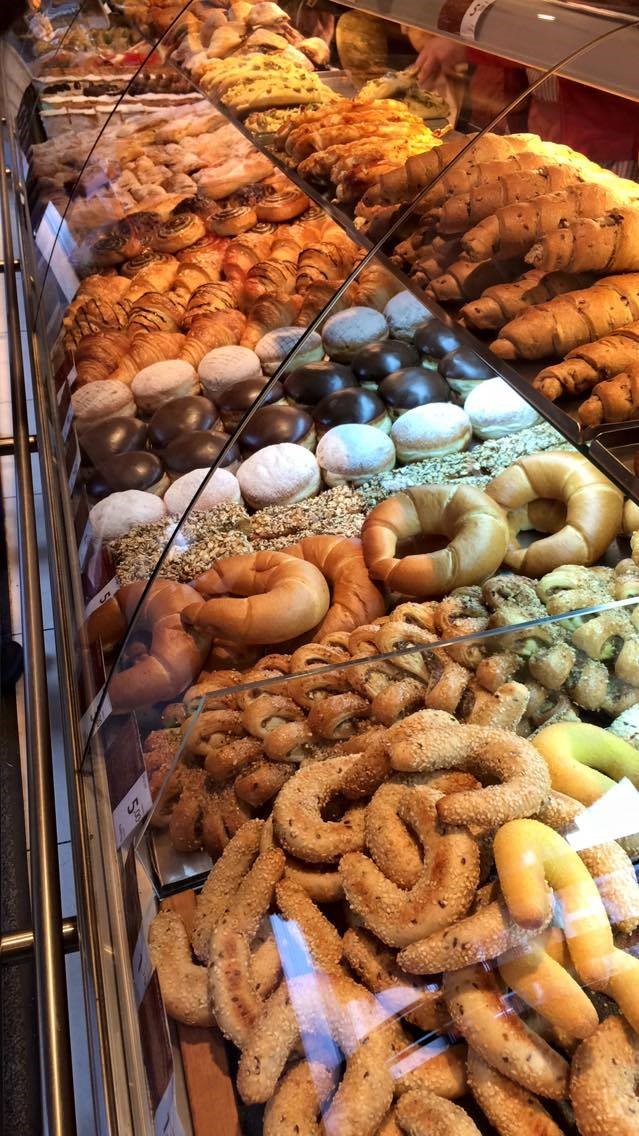 From the point-of-view of tourists, Croatia is one of the most affordable European countries. A huge portion of Carbonara spaghetti served in a restaurant in the centre of tourist spot cost only RM18. A huge slice of cake that normally costs more than RM10 in Malaysia cafes, cost only RM5 in Croatia. With the help of CPSA members, I was able to enjoy the meals in the student dorm with student price. Thus, a huge meal with main dish, salad, dessert and fruits, cost me less than RM5. Due to the student benefits offered, I paid 2.5 euros per day for my hostel and RM4 per day for unlimited tram usage. During my stay in Croatia, I was lucky that I met people from different countries. The CPSA members organised a dinner for me together with 2 Slovenians and a Canadian. During my interaction with them, I got to know pharmacy developments in Croatia, Slovenia as well as Canada. As dispensing separation is the basic right of a pharmacist, the surprising fact is that pharmacists in Canada are allowed to prescribe drugs and they are allowed to inject certain drugs intramuscularly. Hence, the pharmacy degree becomes more intensive and injection skill has to be trained during degree years. I was also told that many pharmacists in Canada are immigrants, particularly Asians and Egyptians. This is because Canadian government welcome foreigners with skills and expertise.
From the point-of-view of tourists, Croatia is one of the most affordable European countries. A huge portion of Carbonara spaghetti served in a restaurant in the centre of tourist spot cost only RM18. A huge slice of cake that normally costs more than RM10 in Malaysia cafes, cost only RM5 in Croatia. With the help of CPSA members, I was able to enjoy the meals in the student dorm with student price. Thus, a huge meal with main dish, salad, dessert and fruits, cost me less than RM5. Due to the student benefits offered, I paid 2.5 euros per day for my hostel and RM4 per day for unlimited tram usage. During my stay in Croatia, I was lucky that I met people from different countries. The CPSA members organised a dinner for me together with 2 Slovenians and a Canadian. During my interaction with them, I got to know pharmacy developments in Croatia, Slovenia as well as Canada. As dispensing separation is the basic right of a pharmacist, the surprising fact is that pharmacists in Canada are allowed to prescribe drugs and they are allowed to inject certain drugs intramuscularly. Hence, the pharmacy degree becomes more intensive and injection skill has to be trained during degree years. I was also told that many pharmacists in Canada are immigrants, particularly Asians and Egyptians. This is because Canadian government welcome foreigners with skills and expertise.
Pharmacy attachment
I was attached to a community pharmacy located in a neighborhood, which is accessible by tram and a short walking distance. Due to the very huge difference in pharmacy practice between Croatia and Malaysia, the practice, the patient literature level and the system amazed me a lot.
Well-organised daily pharmacy operation
Due to the pharmacy being relatively smaller, there are only 2 pharmacists and 2 pharmacy technicians to aid in daily management and dispensing activity. The pharmacy opens early at 7 am and closes at 8 pm. Thus it requires 2 shifts throughout the day. There is a legal restriction that there should be an hour overlapping between the shifts to allow the pharmacists to discuss issues in the earlier shift. As there are extensive extemporaneous preparation, the pharmacy has its own cleaner who constantly cleans the pharmacy throughout the day. In my opinion, this does not only maintain the hygiene of the pharmacy, but it projects the professionalism in a pharmacy to the patients.
Recruitment of pharmacy technician
Different from Malaysia, secondary schools in Croatia provide career specialisation training that allows a secondary school graduate to work as a pharmacy technician if they do not want to further their studies. This impresses me because the culture in Malaysia is too restrictive and often requires a university degree as the only path to secure a job, but neglects the future of those who are not interested in studying. 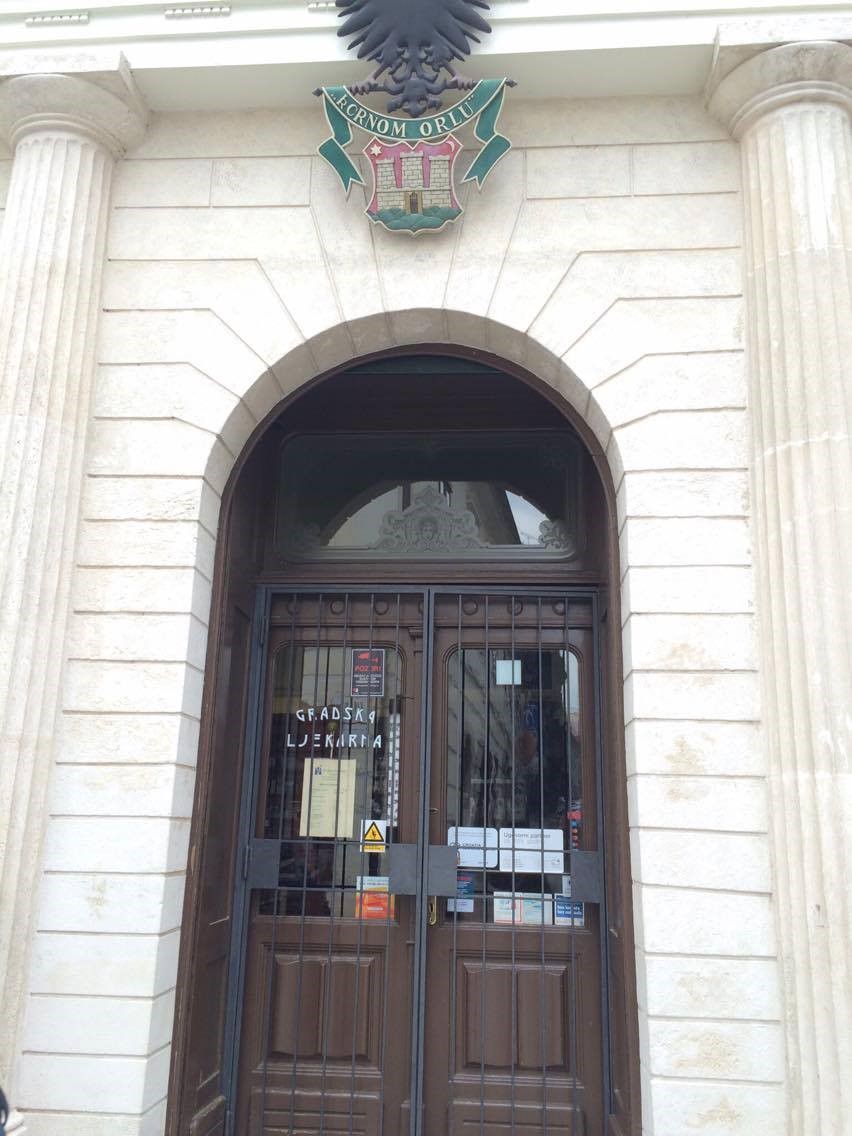
Pharmacy practice in a dispensing separated system
Observing the dispensing separated practice allows me to truly understand the importance of dispensing separation in a healthcare system. In Croatia, there are insufficient medical doctors in service and the ratio of medical doctors to pharmacists is almost 1:10. Due to overwhelming workload, it is very common that the prescriptions issued often have some serious mistakes. For example, during my attachment, the pharmacist shown me that the medical doctor wrongly issued a prescription of digoxin to a HF patient with the instruction of “take 1 tablet 7 times daily”. As the pharmacy is located in the neighborhood, majority of the patients refill their prescription constantly in the same pharmacy. As a result, the pharmacy is able to trace the records of the patients’ past medical and medication history and it allows the pharmacist to screen for clinical errors in the prescription such as drug interactions. Besides patient safety, a dispensing separated system subject doctor and pharmacist practice to ethical monitoring. In Malaysia, I have seen doctor prescribing loratidine for itchiness, cetirizine for allergic reaction and prednisolone for inflammation for a patient with eye allergic reaction. On the other hand, I have also seen a pharmacist dispensing two different brands of cough syrup for cough and prednisolone for sore-throat. Such unethical behaviors will be monitored by prescriber or dispenser and conflict of interest will be reduced if a separated system is applied.
Legal aspects of pharmacy practice
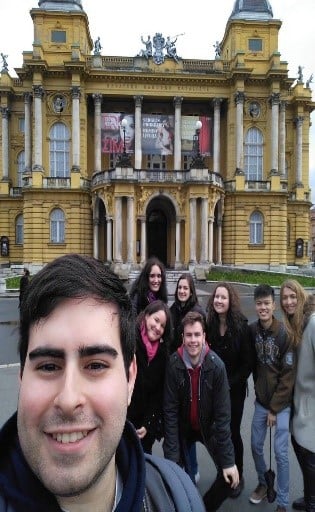 Community pharmacy is subjected to strict legal control. While the community pharmacy benchmarking guideline remains as a guideline in Malaysia, the requirements on community pharmacy design is enforced by law in Croatia. The authority can shut down the pharmacy if any requirement is not met. The pharmacy store MUST have: • dispensing counter, • over the counter shelf, • management office, • laboratory for extemporaneous dispensing, • kitchen, • toilet, • drug storage area. (Due to different characteristics of drugs, storage requirement may vary. For example, narcotics are needed to be stored in safe box and flammable chemicals have to be stored in different cupboards with good ventilation)
Community pharmacy is subjected to strict legal control. While the community pharmacy benchmarking guideline remains as a guideline in Malaysia, the requirements on community pharmacy design is enforced by law in Croatia. The authority can shut down the pharmacy if any requirement is not met. The pharmacy store MUST have: • dispensing counter, • over the counter shelf, • management office, • laboratory for extemporaneous dispensing, • kitchen, • toilet, • drug storage area. (Due to different characteristics of drugs, storage requirement may vary. For example, narcotics are needed to be stored in safe box and flammable chemicals have to be stored in different cupboards with good ventilation)
Conclusion
Overall, I must say it is a precious experience for an undergraduate like me to travel abroad and learn the pharmacy profession in Europe. The pharmacist taught me the Croatian healthcare system, sharpened my extemporaneous preparation skill and shown me interesting cases in the pharmacy.
Apart from professional development, I was introduced to pharmacy students around the world. We exchanged our opinions in pharmacy development, our culture, as well as our Facebook, in order to maintain the international network. As the attachment lasted for 3 weeks, I had the chance to enjoy the lifestyle of a Croatian. I learnt some simple Croatian words, enjoyed their food, took their public transport and had outings during weekends. I am grateful and thankful to everyone who made this happen!”




